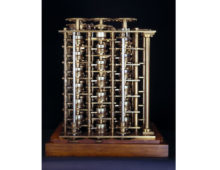Tagged with Democracy
Resource : Banner from the “Peterloo Massacre”
On the 16th August 1819, a huge crowd of people gathered in St Peter’s Field, Manchester to hear Henry ‘Orator’ Hunt and other noted radical speakers calling for parliamentary reform. At least 17 people would die of injuries received on the day, and around 700 suffered serious wounds at the hands of local armed forces. There was a popular outcry, and the radical press named the incident the ‘Peterloo Massacre’, a mocking reference to the Battle of Waterloo.
Resource : Poster advertising the Chartists’ Demonstration on Kennington Common, 1848
The Chartists were members of a national and generally peaceful protest movement who campaigned between 1838 and 1857 for political reform and representation of working class people. It was the first British mass movement to be driven by the working classes. The development of the industrial printing press helped spread the word and gather support for peaceful protests. The Chartists’ ‘demands’ still underpin British democracy today.
Resource : Silhouette of Thomas Muir
Thomas Muir was a radical, who campaigned for political reform in Scotland. He was eventually accused of sedition and transported to Australia, following one of the most notorious and controversial trials in Scottish history. He became known as the father of Scottish democracy and one of Scotland’s five ‘political martyrs’.
Resource : American revolution
How the American colonies defied Britain, one of the mightiest powers on earth, to secure their independence and form a new federal republic – the United States of America.


